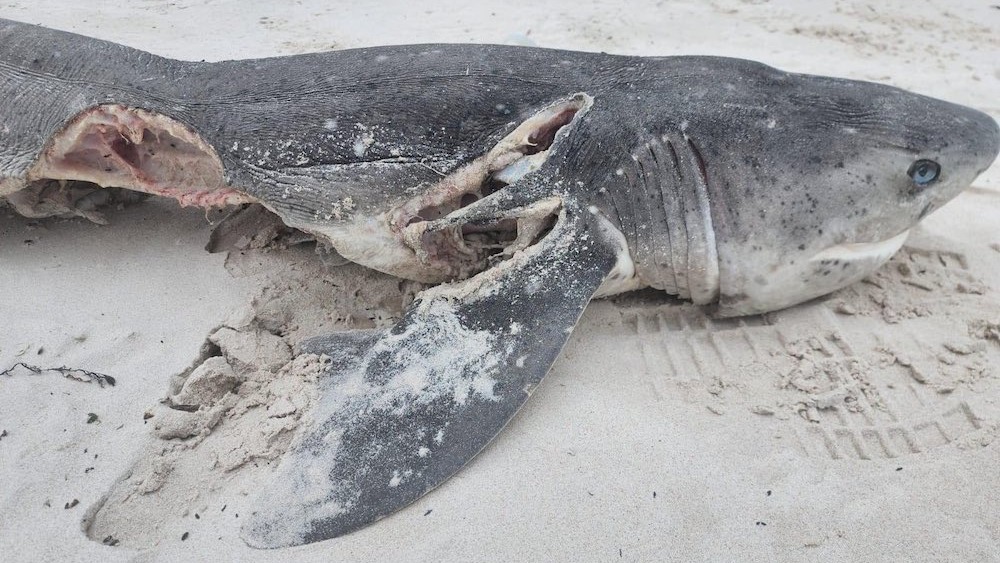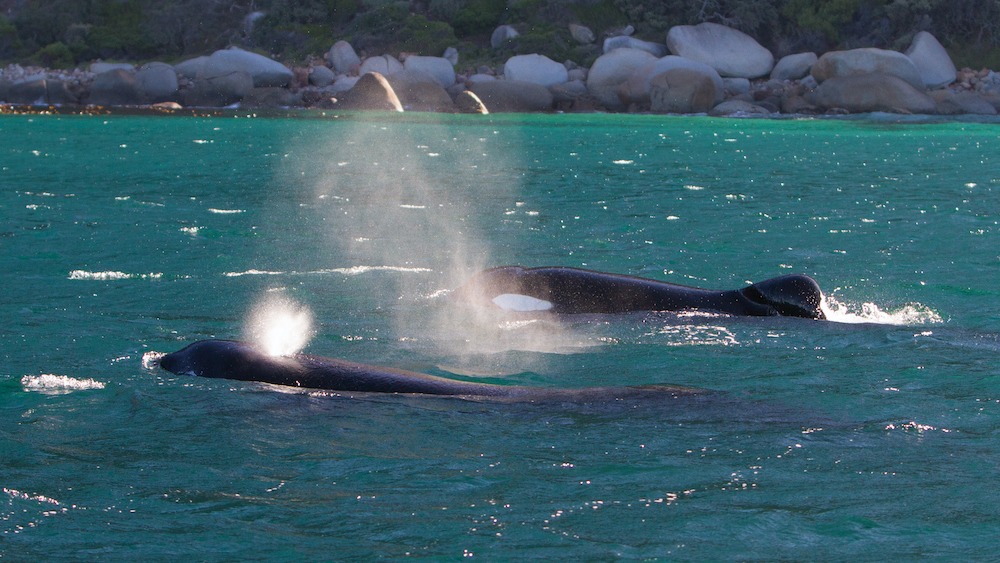2 orcas slaughter 19 sharks in a single day in South Africa, eating their livers and leaving them to rot
An orca killing spree continues in South Africa. Their target: shark livers.

Get the world’s most fascinating discoveries delivered straight to your inbox.
You are now subscribed
Your newsletter sign-up was successful
Want to add more newsletters?

Delivered Daily
Daily Newsletter
Sign up for the latest discoveries, groundbreaking research and fascinating breakthroughs that impact you and the wider world direct to your inbox.

Once a week
Life's Little Mysteries
Feed your curiosity with an exclusive mystery every week, solved with science and delivered direct to your inbox before it's seen anywhere else.

Once a week
How It Works
Sign up to our free science & technology newsletter for your weekly fix of fascinating articles, quick quizzes, amazing images, and more

Delivered daily
Space.com Newsletter
Breaking space news, the latest updates on rocket launches, skywatching events and more!

Once a month
Watch This Space
Sign up to our monthly entertainment newsletter to keep up with all our coverage of the latest sci-fi and space movies, tv shows, games and books.

Once a week
Night Sky This Week
Discover this week's must-see night sky events, moon phases, and stunning astrophotos. Sign up for our skywatching newsletter and explore the universe with us!
Join the club
Get full access to premium articles, exclusive features and a growing list of member rewards.
A pair of killer whales has embarked on yet another killing spree, eating the livers of 19 broadnose sevengill sharks (Notorynchus cepedianus) and leaving their carcasses to wash ashore off the coast of Pearly Beach, a village located along the southernmost tip of South Africa.
The baffling carnage caught the attention of Alison Kock, a marine biologist with South African National Parks who tweeted about the "infamous" duo of male orcas (Orcinus orca) known as Port and Starboard and the feeding frenzy that ensued on Feb. 23.
However, this isn't the first time that the orca duo has wreaked havoc in this area. In 2017, the pair slaughtered at least eight great white sharks. And in all but one case they dined solely on the sharks' livers, leaving the rest of their bodies to rot.
So, what is it about shark livers that seemingly whet the appetite of these blood-thirsty orcas?
Related: Photos: Orcas are chowing down on great-white-shark organs
In her tweet, Kock explained that "they likely initially learn by experience when first predating a new species," meaning that once the orcas were aware of the liver's location on a shark "they will remember it forever and become more efficient [hunters]."
It also helps that shark livers are "highly nutritious and have large quantities of fats and vitamins," Kock told Live Science in an email. "Orcas may have learned that consuming shark livers provides high energy and nutrients. Sharks' livers are large and buoyant, and they float to the surface of the water when a shark is killed. This makes them easy for orcas to spot and access, compared to other organs that may sink to the bottom or be harder to locate."
Get the world’s most fascinating discoveries delivered straight to your inbox.
Similar to tag team wrestling, orcas often hunt in groups or pairs so they can corner sharks. This is important because this gives them an advantage over their prey.
"One orca may distract the shark while another goes in for the kill," Kock said. "This hunting strategy requires high intelligence and social cooperation among the orcas. The orcas may also use their large tails to slap and incapacitate sharks or flip them over to induce tonic immobility. Tonic immobility occurs when a shark is flipped upside down and goes into a trance-like state."
Kock said this kind of behavior has been documented worldwide, including in South America, North America, Australia and New Zealand. However, it wasn't until fairly recently that these attacks were becoming more commonplace amongst sevengill and great whites in South Africa. And the fact that so many sharks died on a single day raises concern.
"This is a large number for a single day of hunting," Kock wrote in her email. "However, the real impact is not on the number of sevengills killed but on how the sharks respond to predation risk by leaving an area, sometimes abandoning aggregation sites. The absence of these top predators (the sharks) could have knock-on impacts on the local ecosystem."
Jennifer Nalewicki is former Live Science staff writer and Salt Lake City-based journalist whose work has been featured in The New York Times, Smithsonian Magazine, Scientific American, Popular Mechanics and more. She covers several science topics from planet Earth to paleontology and archaeology to health and culture. Prior to freelancing, Jennifer held an Editor role at Time Inc. Jennifer has a bachelor's degree in Journalism from The University of Texas at Austin.
 Live Science Plus
Live Science Plus











